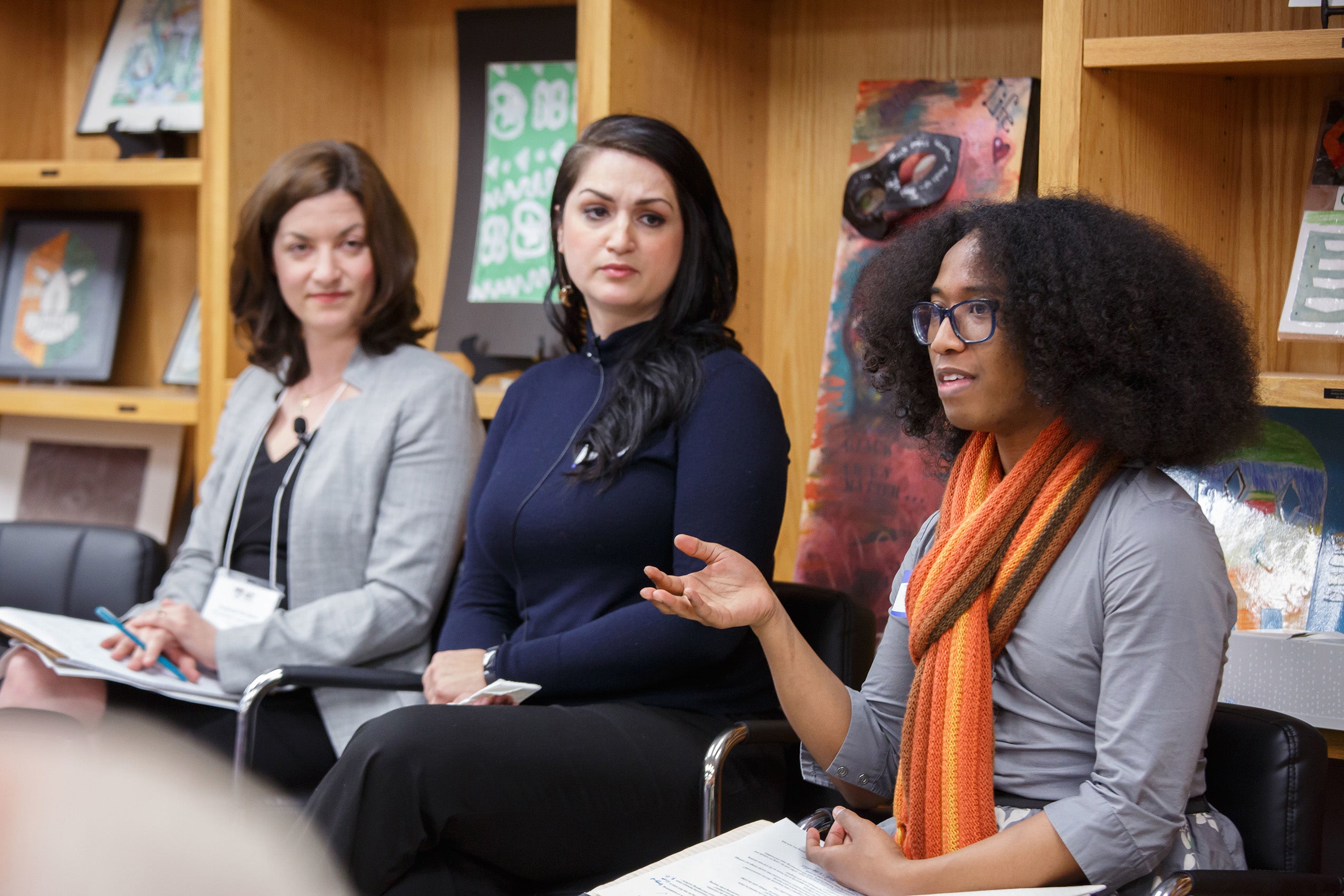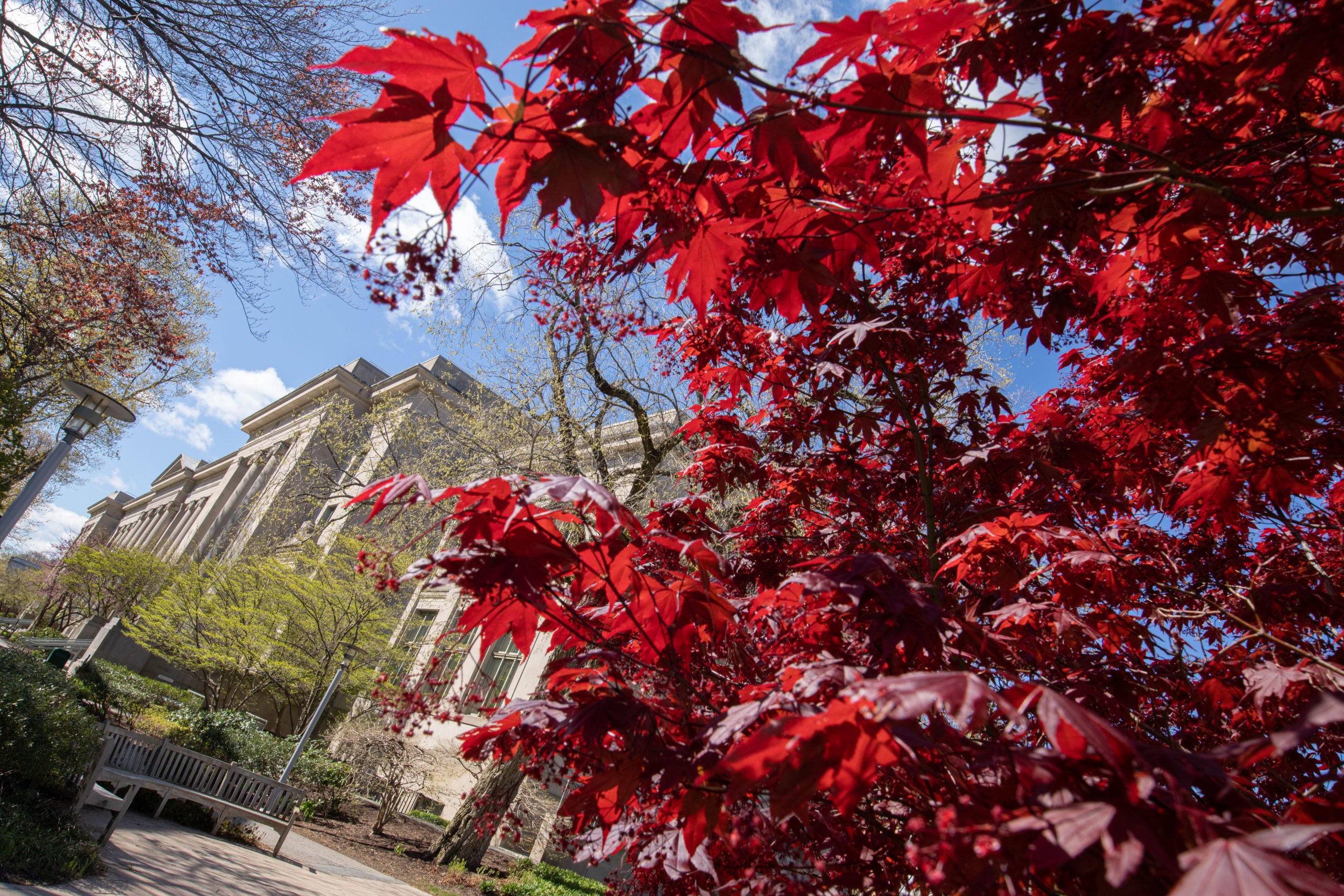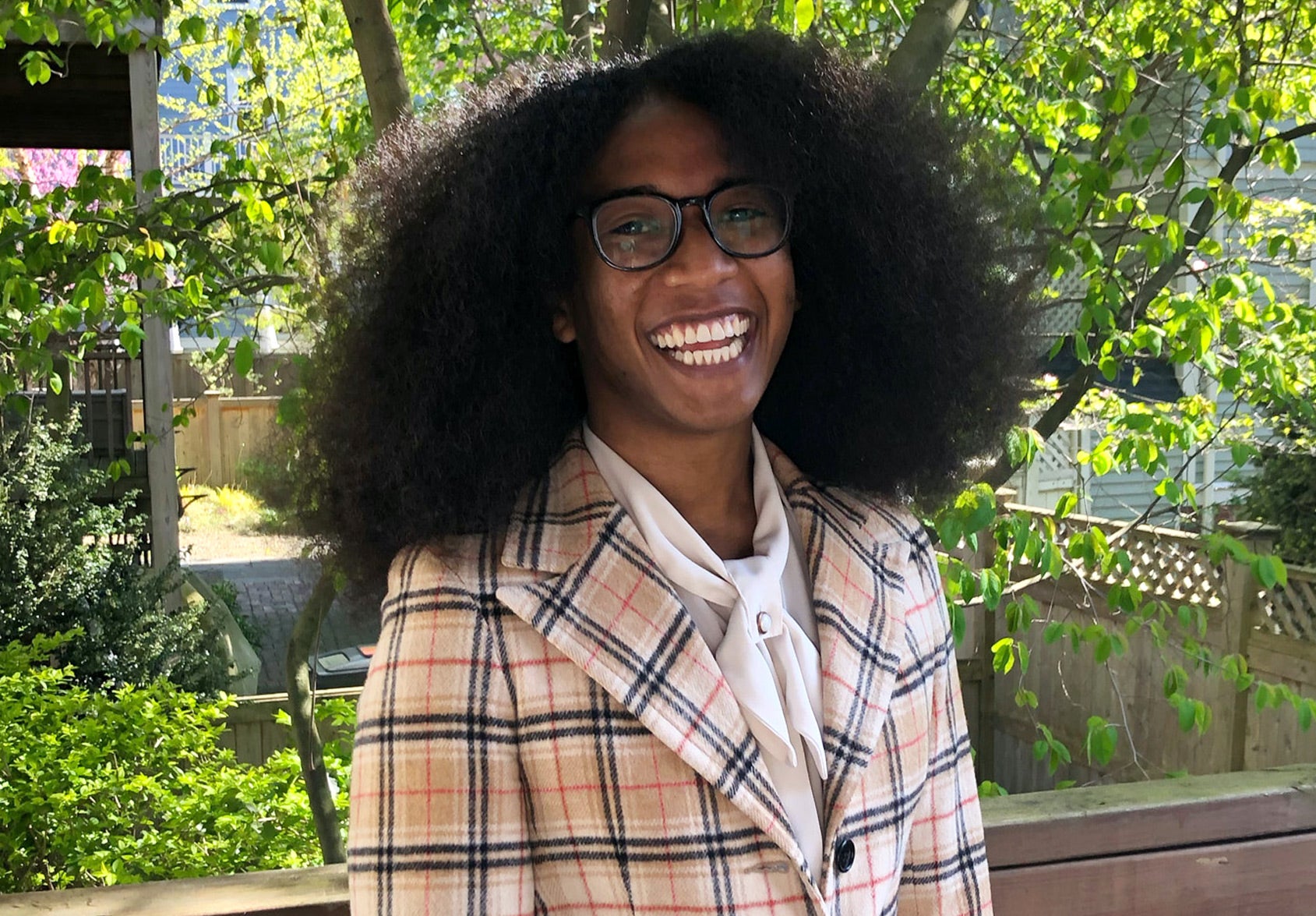Whatever D Dangaran ’20 ends up doing with their life, they will ultimately have President Barack Obama ’91 to thank or blame for it.
Dangaran grew up in Wahiawa in Hawaii, a town of less than 20,000 people. In 6th grade, they began commuting an hour and a half by bus each day to attend the Punahou School in Honolulu, Obama’s alma mater. When Dangaran was in 7th grade, Obama, then a United States senator, visited the school and Dangaran had the opportunity to ask him one question. Dangaran, who along with their cousins was among the first generation in their family to go to college, has always sought teachers and mentors to help navigate their path. So Dangaran, who had developed an almost “cultish” devotion to giving back to the community after receiving financial aid to attend Punahou, asked Obama what advice he would give to someone who wanted to dedicate their lives to public service.
The future U.S. president’s answer changed their life. He said: “Dream big. If you want to be a doctor, aim to find a cure for cancer. If you want to find ways to help your community and create structural change, then aim to be a Supreme Court justice.” Dangaran had no idea what a justice was, but they decided to dream big and find out. After observing that most Supreme Court justices had attended either Harvard or Yale, Dangaran determined that they would have to do the same. Ultimately, Dangaran did both, attending Yale for college and Harvard for law school.
Dangaran grew up in a full household—home to 14 people at its largest—where everyone took care of each other. Dangaran was raised by aunts, treated cousins as siblings, and had their meals cooked by grandparents. Raised in an extended community model, Dangaran has spent their life trying to recreate those small communities everywhere they went.
When they got to Yale, Dangaran threw themselves into the community with gusto. In addition to coursework, Dangaran engaged in on-campus activism for autism awareness, served as co-president of a group focused on LGBT people of color, and sang in an a capella group. Dangaran also delved into off-campus activities ranging from leading a children’s theater class to volunteering at a palliative care center for people living with AIDS. In their remaining spare time, Dangaran served as a communication and consent educator, conducting bystander intervention and consent workshops for fellow undergraduates.
After college, Dangaran decided they wanted to spend some time living internationally in a place with “human rights norms around LGBT issues that were not positive.” That led them to the Dean of Students Office of Yale-NUS College in Singapore, where they spent two years advising students on LGBT, feminist, and sexual health issues, while quickly immersing themselves in a world of local activism, HIV/AIDS work, queer art, and feminism.
Dangaran arrived at HLS in the fall of 2017 with plans to focus on international human rights work, but a reading group with Professor Susan Farbstein ’04 made them more critical of efforts by the international community to intervene and support human rights in nations around the globe and more invested in helping to foster activism led by citizens in the affected countries. This new focus led them to spend their 1L summer at a local impact litigation organization in Cape Town, and to participate in both the Tenants Advocacy Project and the Prison Legal Assistance Project, where they sought clients who were LGBT or had backgrounds involving sex work.
As a 2L, Dangaran joined the notoriously time-consuming Harvard Law Review, but nevertheless found time to participate in the Family and Domestic Violence Law clinic, co-chair a Lambda conference on the intersection of LGBTQ communities and the criminal justice system, intern at GLAD in Boston, and edit an article for the Harvard Journal of Law & Gender about the “Me Too” movement and women of color. This spring, HLS honored Dangaran with the William J. Stuntz Award, given to the graduating student who “has demonstrated an exemplary commitment to justice, respect for human dignity, and compassion.”

After law school, Dangaran will clerk for two federal judges: Judge Corinne Beckwith on the District of Columbia Court of Appeals, followed by Judge Mark Bennett on the Ninth Circuit in Honolulu. Dangaran is aware that their background might make them an unusual candidate for a clerkship with Bennett, who was recently appointed by U.S. President Donald J. Trump. They credit Professor Nikolas Bowie ’14 with helping them to see that even the most dedicated activists will be stronger advocates if they can rigorously assess their own positions through the eyes of their opposition. “This is just the world that I will be living in,” they say, describing the increasingly conservative federal bench. In light of that, Dangaran sees value in learning “how they think and what arguments could possibly be viable for them.”
Dangaran, whose interests have run the gamut from special education to decolonialism, intends to focus long-term on gender issues and transformative justice, which they describe as the goal of restructuring social institutions that “were not necessarily built for people I care about.” President Obama’s advice aside, Dangaran admits they are probably “too progressive and radical at this point” for the Supreme Court. But that doesn’t mean they can’t “help their community and create structural change,” as Obama put it. “When someone experiences harm, I want to be there to help,” they say. “What ties all my interests together is trying to name harm when I see it and end harm, end the suffering.”
***

